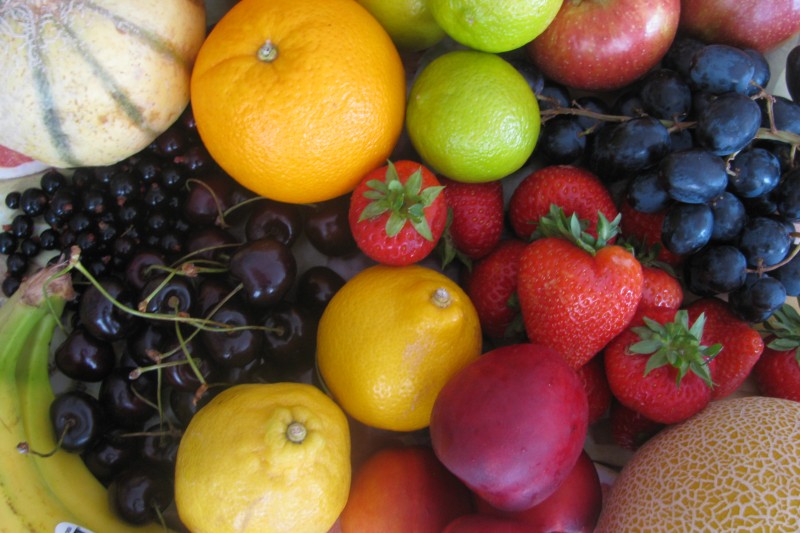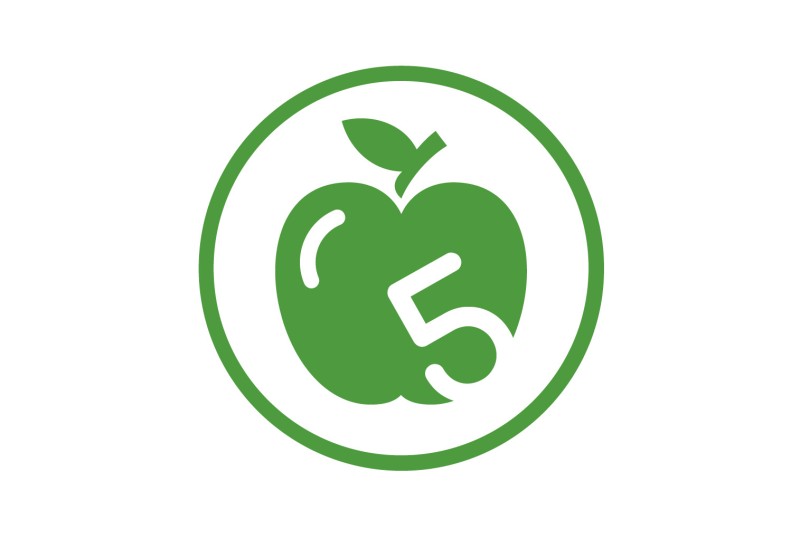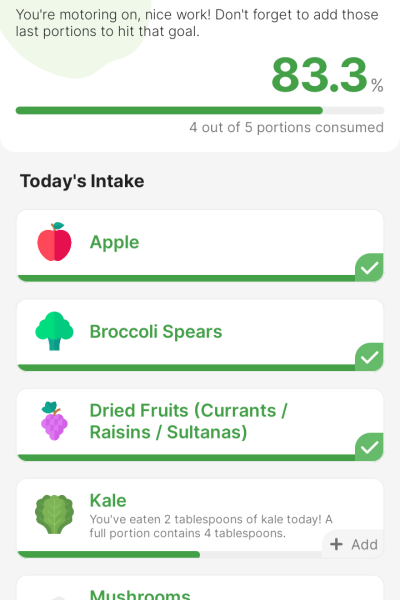Fruit and vegetable consumption has numerous health benefits, including reduced risk of cardiovascular disease, stroke, some cancers, type II diabetes, obesity and osteoporosis.
As a result of these benefits, the World Health Organisation currently recommends consumption of 400g of fruit and vegetables per day, which in the UK is translated into five portions of 80g. These should be five portions of different fruits and vegetables (NHS, 2022).
Despite the benefits, fruit and vegetable consumption in the UK is low. Adults consume on average 4.3 portions per day, and children aged 11 to 18 years 2.9 portions per day.
While consumption is low, the majority of UK adults are aware of the 5-a-day message and could recount this correctly in two studies (Appleton et al., 2018). In these studies, however, knowledge of the details of the message (such as which foods are included, portion sizes, the need for variety, and reasons for consumption) was low. Lower knowledge was also associated with lower fruit and vegetable consumption. Consumption was not independently associated with knowledge of any one aspect of the message, but respondents had lowest knowledge of the details of the message related to portion sizes and the need for variety.
Prior to this work, some qualitative research (Rooney et al., 2017), specifically conducted in low consumers of fruit and vegetables, also found particular difficulties with the portion size and variety components of the message.
Supporting understanding and adherence to 5-a-day
Following findings that consumers struggle most with portion sizes and the need for variety, we, in collaboration with app development company Vers Creative UK, have developed an interactive mobile phone app (SMART 5-A-DAY) to aid understanding and adherence to the UK's 5-a-day recommendations.
The app allows users to input fruit and vegetables in household measures, converts this to portions as dictated by the 5-a-day message, provides this information to increase understanding of portion sizes, provides information on the amount required for a full portion if less than a full portion is consumed, tracks intakes and provides motivational messaging to aid adherence.
The conversion of consumption into portions and the provision of this information are unique features of the app. In contributing to daily totals, fruit and vegetables are also only added until one portion is reached, requiring the consumption of 5 different portions per day and aiding understanding of the concept of variety.
The information is intended to educate users, but also ensures this information is directly relevant to the user (i.e. they only get the information on the fruit and vegetables that they consume), can be gained at the time and location of consumption, and is provided in a clear and accessible manner.
The app was developed based on the earlier research and following discussion with potential users, and an initial test of a prototype suggested some benefits for fruit and vegetable behaviours (Appleton et al., 2019). Further testing is currently underway, and we are also looking to develop the app specifically for adolescent audiences.
The SMART 5-A-DAY app will be launched on the 29th December 2022, and then available to the general public for free for three months until 29th March 2023.
Anyone who wishes to can download the app, but it is only suitable for Android phones.
User of the prototype SMART 5-a-day app
I think it was useful in terms of realising that I don’t eat enough fruit and veg, as it has made me think about it more.
Gathering data and feedback
The app has been created by Vers Creative UK. Recent developments of the app and future hosting have been funded by Bournemouth University through HEIF funding.
During the three month hosting period, we are hoping to gauge interest in the app from the general public with a view to gaining further funding to host it on a long term basis - again, as an app that is free for consumers.
We will gain data on number of users, and how long they use the app for, from the app development company, but if you would like to take part in research related to the app, please contact the lead researcher Professor Katherine Appleton on [email protected] before downloading it.
If you have any feedback on the app, comments can be left at [email protected].

 The SMART-5-A-DAY app icon, Copyright 2022, Vers Creative UK, used with permission.
The SMART-5-A-DAY app icon, Copyright 2022, Vers Creative UK, used with permission. The SMART 5-a-day app
The SMART 5-a-day app